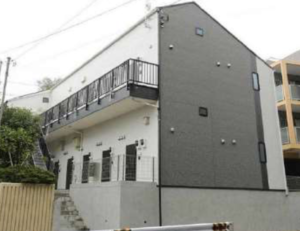
Investing in Japanese Real Estate: What Foreign Investors Need to Know
Japan is a country with a rich history and culture, and its real estate market is no exception.
With its unique blend of modernity and tradition,
Japan offers a wide range of investment opportunities for foreign investors.
However, investing in Japanese real estate can be a complex process,
and it is important to understand the legal and
cultural nuances before making an investment.
As a real estate agent based in Tokyo serving foreign investors,
I have seen first-hand the potential for growth and success
in the Japanese real estate market.
In this article, I will share some key information t
hat foreign investors should know before investing in Japanese real estate.

Understanding the Legal System
One of the most important things to understand
before investing in Japanese real estate is the legal system.
Japan has a civil law system, which means that the law is primarily
based on written codes and statutes.
This is different from common law systems,
such as those found in the United States and the United Kingdom,
where the law is primarily based on judicial decisions and precedents.
In Japan, there are several laws and regulations that govern real estate transactions.
For example, the Civil Code sets out the basic rules
for contracts, property rights, and other legal matters.
There are also specific laws that regulate real estate transactions,
such as the Building Lots and Buildings Transaction Business Act
and the Real Estate Specified Joint Enterprise Act.
It is important for foreign investors to understand these laws
and regulations before investing in Japanese real estate.
Working with a knowledgeable real estate agent
or attorney can help ensure that your investment is legally sound.
Cultural Differences
In addition to understanding the legal system, it is also important
to be aware of cultural differences when investing in Japanese real estate.
Japan has a unique culture that can impact the way business is conducted.
For example, in Japan, it is common for parties to engage in lengthy negotiations
before reaching an agreement.
This can be different from other countries
where negotiations may be more direct and straightforward.
It is important to be patient and respectful during these negotiations
to build trust and establish a good working relationship.
Another cultural difference to be aware of is the importance of
hierarchy and seniority in Japanese society.
In business dealings, it is important to show respect to
those who are older or more senior than you.
This can include using formal language and bowing when greeting someone.

Case Study: Mortgage Property Auctions
To illustrate some of the complexities of investing in Japanese real estate,
let’s look at a recent case involving a mortgage property auction.
In this case, a real estate company acquired a single-family home at auction
for resale purposes. However,
They discovered that the previous owner had rented out the property
and that the actual occupant was a subtenant who had sublet it without permission.
They demanded immediate eviction from the subtenant,
but they (the occupant) claimed that there was
a six-month grace period for eviction and refused to vacate.
This situation raised several legal questions
about the rights of the purchaser, tenant, and subtenant.
Under Japanese law, if mortgaged real estate subject to lease
is put up for auction, if a lease agreement was concluded before mortgage rights
were established and delivery was received by tenant,
then tenant’s lease rights take precedence over mortgage rights
and tenant can continue to occupy. However,
if tenant acquired lease rights after mortgage rights were established
and has been using or earning income from them before commencement
of auction proceedings, they are protected by six-month grace period
for delivery and do not have to deliver auctioned property to purchaser
(Civil Code Article 395(1)).
In this case, it was determined that no grace period for eviction
was granted to subtenants who had not obtained consent from their landlords (Civil Code Article 612).
As such, the real estate company was able to request eviction from the subtenant.
This case illustrates some of the complexities of investing
in Japanese real estate.
It is important for foreign investors to work
with knowledgeable professionals who can help navigate these complexities.
Conclusion
Investing in Japanese real estate can be a rewarding experience for foreign investors.
However, it is important to understand the legal system and cultural differences
before making an investment.
Working with a knowledgeable real estate agent or attorney can help ensure
that your investment is successful.
I hope this article has provided some useful information
for foreign investors looking to invest in Japanese real estate.
If you have any further questions or would like more information about investing in Japan,
please don’t hesitate to contact us.

Insight
Investing in Japanese real estate can be a great opportunity for foreign investors.
However, it is important to understand the legal and cultural nuances before making an investment.
Working with a knowledgeable real estate agent or
attorney can help ensure that your investment is legally sound and culturally appropriate.
If you are a foreign investor looking to invest in Japan,
don’t hesitate to take the first step.
Contact a real estate agent or attorney today to learn
more about the opportunities available to you.
With the right guidance and support,
you can successfully navigate the complexities of the Japanese real estate market
and make a profitable investment.
So why wait? Take action today and start your journey
towards success in the Japanese real estate market!

Source: 抵当不動産を競落した買受人は、無断で入居している転使用借人に対し、競落物件の引渡しを求めることができるか。
Toshihiko Yamamoto – Founder and Lead Broker, Yamamoto Property Advisory
Toshihiko Yamamoto is the founder and principal broker of Yamamoto Property Advisory,
a distinguished real estate brokerage in Tokyo that specializes in luxury residential and investment properties for an international clientele.
His firm caters to discerning investors seeking premier properties for personal use and income-generating whole buildings for investment purposes.
A licensed real estate broker in Japan, Mr. Yamamoto holds an MBA from Bond University in Australia
and a Certified Commercial Investment Member (CCIM) designation from the CCIM Institute in the United States.
His extensive international experience, having lived abroad in Australia and the United Kingdom, equips him
with a nuanced understanding of global real estate trends and the unique needs of foreign investors.
With over two decades of experience in international business, Mr. Yamamoto has successfully conducted business with clients from more than 20 countries.
As a seasoned property investor himself, he provides informed guidance to his clients as they navigate the intricacies
of the Japanese real estate market to secure optimal investments.
Discover more in his book, “The Savvy Foreign Investor’s Guide to Japanese Properties: How to Expertly Buy, Manage,
and Sell Real Estate in Japan,” available on Amazon, iBooks, and Google Play.
Connect with us through social media on Instagram, WhatsApp, and LINE for further information and expert assistance.

